- Home
- About Us
- Projects
Gender Equality And Women Empowerment
Advocacy
Social Walfare
Human Rights And Justice For All
- Thematic Areas
- Media
- Publications
- Events
- News
When some Western leaders met and declared that by 2025 they would have invented electric cars that will herald a new phase of transportation in the world, it was a great challenge for African leaders especially those dependent on oil to develop a sustainable economic metric that will keep their citizens afloat. The consensus therefore was to invest in agricultural sector and engage the womenfolk as drivers of the vision. Findings show that putting economic resources in the hands of women accelerates development and reduces poverty in the society. Aside this, women typically invest in their families and communities significantly more than men thereby spreading wealth and improving quality of the life for their families. Armed with these facts, the Family Empowerment and Youth Reorientation Path Initiative, FEYReP, has given the women of the state a boost in entrepreneurship and a source of sustenance in the face of the telling economic situation of the country. The founder of FEYReP Dr (Mrs) Martha Udom Emmanuel had done a thorough need assessment in the area of comparative advantage of women in various local governments of the state and came away with the resolve to build agro-processing chain to assist rural farmers process their products with ease while eliminating post harvest losses.
In Ibeno and Mbo local government areas, FEYReP was unsatisfied with the difficulties women of the area go through to get their seafoods processed, as such set up Seafood Processing Factories at Ibaka Beach, Mbo LGA and Ibeno Beach, Ibeno LGA respectively. During the ground breaking ceremony, Mrs. Martha Emmanuel and founder of FEYReP said the factories will ameliorate the sufferings often associated with the traditional way of drying fishes.
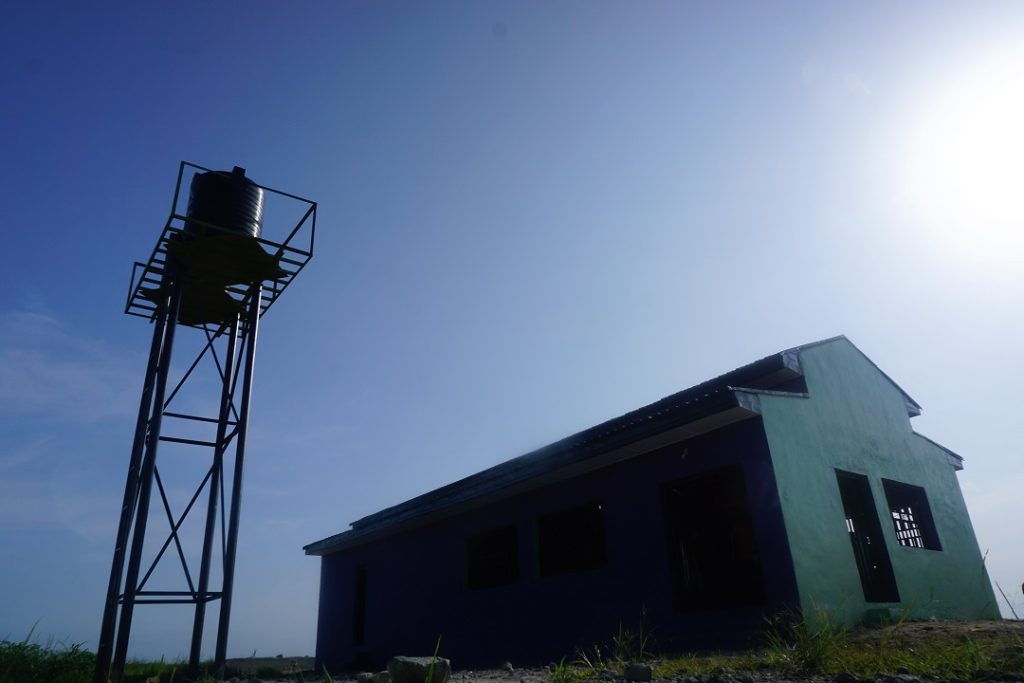
“This project was conceived to reduce the stress associated with fish processing. It is my hope and belief that with this factories, we will reduce the stress in the processing of fish and boost income for women in the areas”, Says the founder of FEYReP, Mrs Martha Udom Emmanuel.
Also, in the words of the coordinator of FEYReP, Mrs. Ime Inyang, “The essence of the factories is to build a strong and virile economy in line with some of the five-point agenda of the administration of Mr. Udom Emmanuel in the area of food sufficiency. Since FEYReP is anchored on touching lives and adding value to communities, the two factories have so far provided safe, efficient and eco-friendly environment for families to process at least a 1000 kg of fishes a day”.
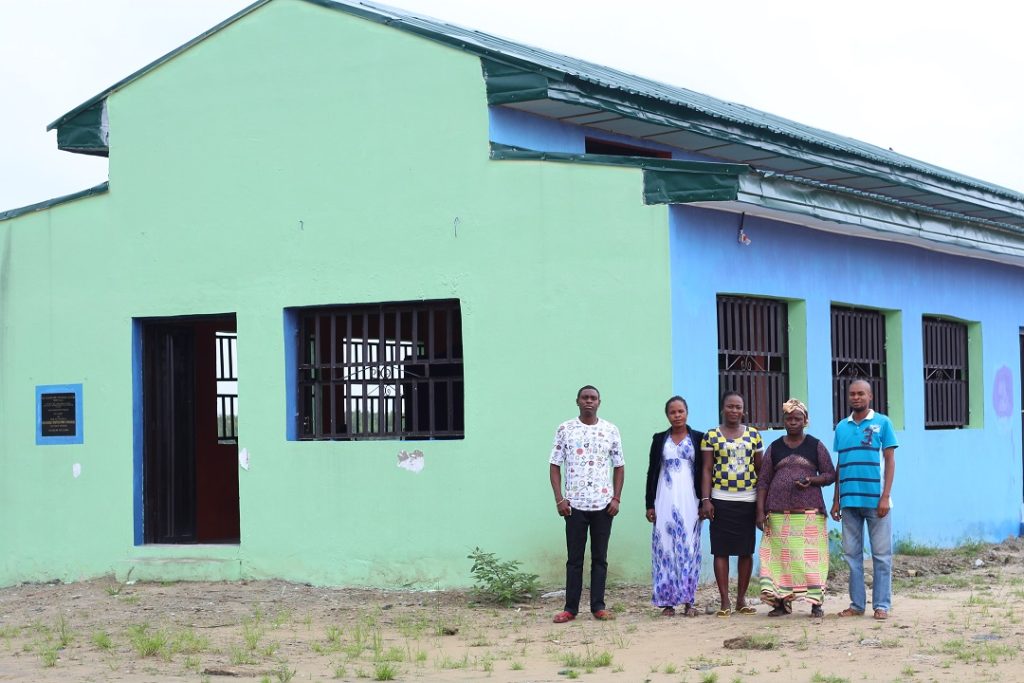
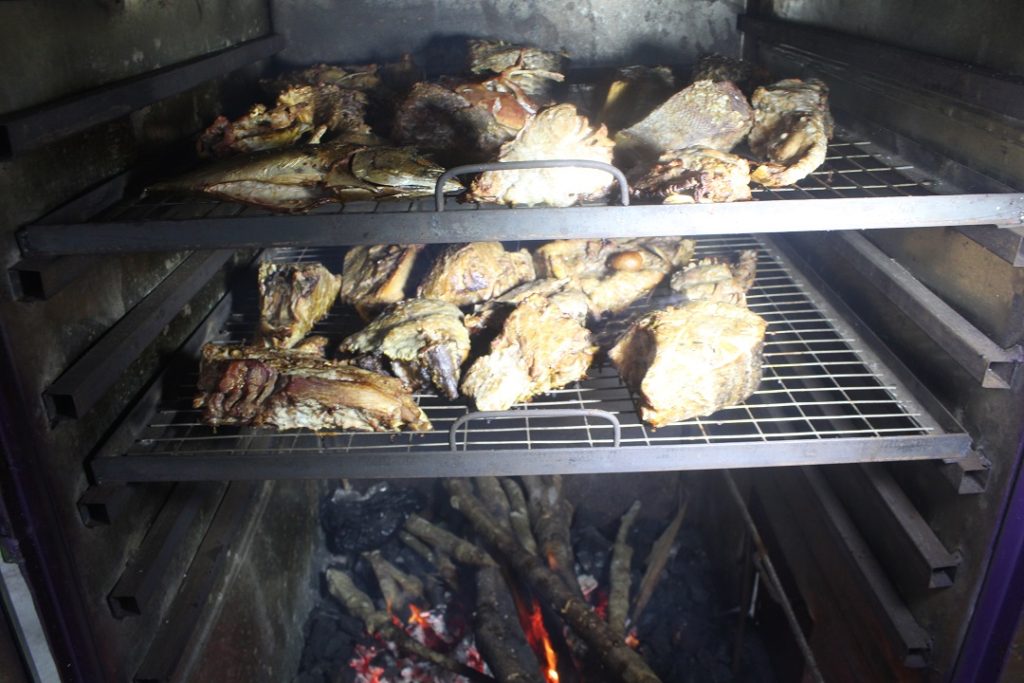
With the industrialization policy of the state, fish farming has huge potential towards boosting an industrial economy. There is high demand for fish both locally and internationally. Europe is a reliable market. If fish farming can be done according to modern standards as demonstrated by FEYReP, it can help our economy to grow, and put the state as a major exporter of fish to Europe.
Presently in Nigeria, the mechanization level of fish processing is low which results in the overall limited production, seasonal availability of fish, poor information dissemination of the available improved technology to processors, and lack of inexpensive equipment adaptable for processing. The production system is mainly artisanal and fish are marketed mostly in five different forms; fresh, smoked, dried, salted, and frozen. With the provision of this seafood processing equipment, FEYReP has succeeded in placing Akwa Ibom in this direction.

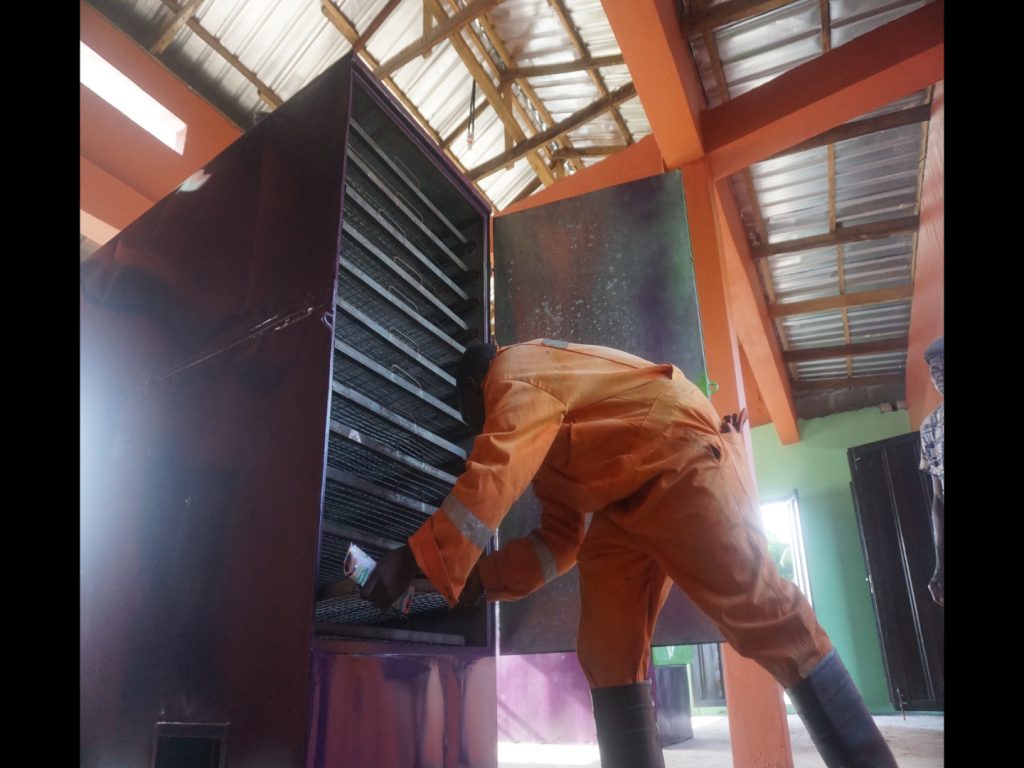
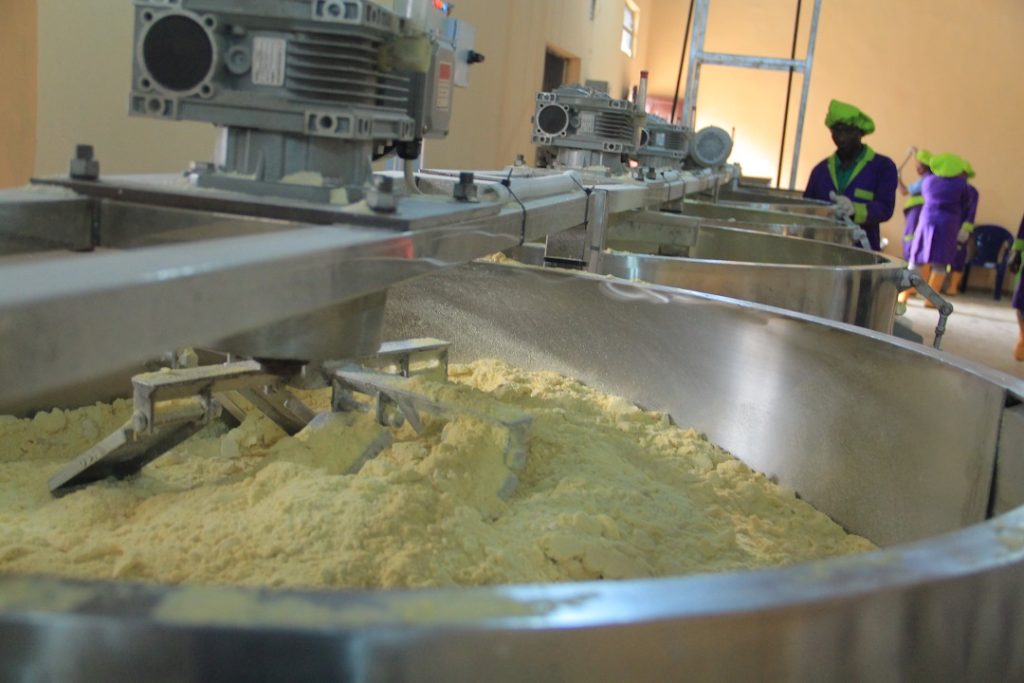
In 2017, two months after FEYReP laid the foundation for a Cassava Processing Plant in Ikot Aba, Ibiono Ibom Local Government Area, and Ananamong, Itumbonuso, Ini Local Govt Area, the people of both communities and adjoining areas, can now heave a sigh of relief in processing their cassava into finished products. Nigeria has been consistently ranked as the world’s largest producer of cassava, producing around 45 million tonnes in 2009, almost 19% of the total world production . The major constraint of cassava processing in this part of the country is rapid deterioration of the roots. Cassava roots have a shelf-life of 24–48 hours after harvest . Once harvested, it has to be either consumed immediately or processed into more stable product forms.
Fresh roots must be processed within 2 to 3 days from harvest. To reduce this level of losses, it is very necessary that they are processed as early as possible, hence need for the processing plants by FEYReP. Prior to the siting of the two cassava factories, cassava processing in the two local governments was done using traditional methods which is tasking, ineffective, time consuming and inefficient. The problem was worsened when large quantities were to be produced. With this difficulty in processing, farmers always resorted to selling their crops at a very low price to middlemen.
Cassava food products are the most important staples of rural and urban households in southern Nigeria. Current estimates show that the dietary calorie equivalent of per capita consumption of cassava in the country amounts to about 238 kcal (Cock, 1985). This is derived from the consumption of garri(toasted granules), chips/flour, fermented pastes and/or fresh roots, the principal cassava food forms.
Women play a central role in cassava production, contributing about 58 percent of the total agricultural labour in the southwest, 67 percent in the southeast and 58 percent in the central zones, with involvement in virtually all activities, hoeing, weeding, harvesting, transporting, storing, processing and marketing (IFAD, 1994). In Okobo Local Government Area, FEYReP has successfully bred a high-yielding cassava variety which has been a big boost to garri production in the state. This effort contributed greatly to the crashing price of garri in the state.
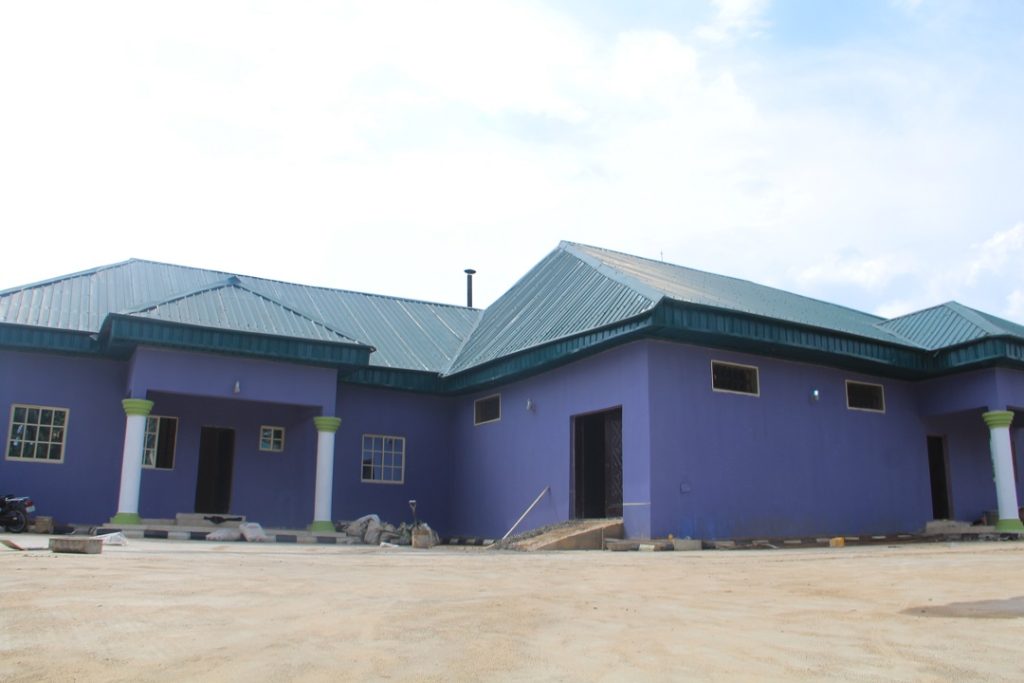
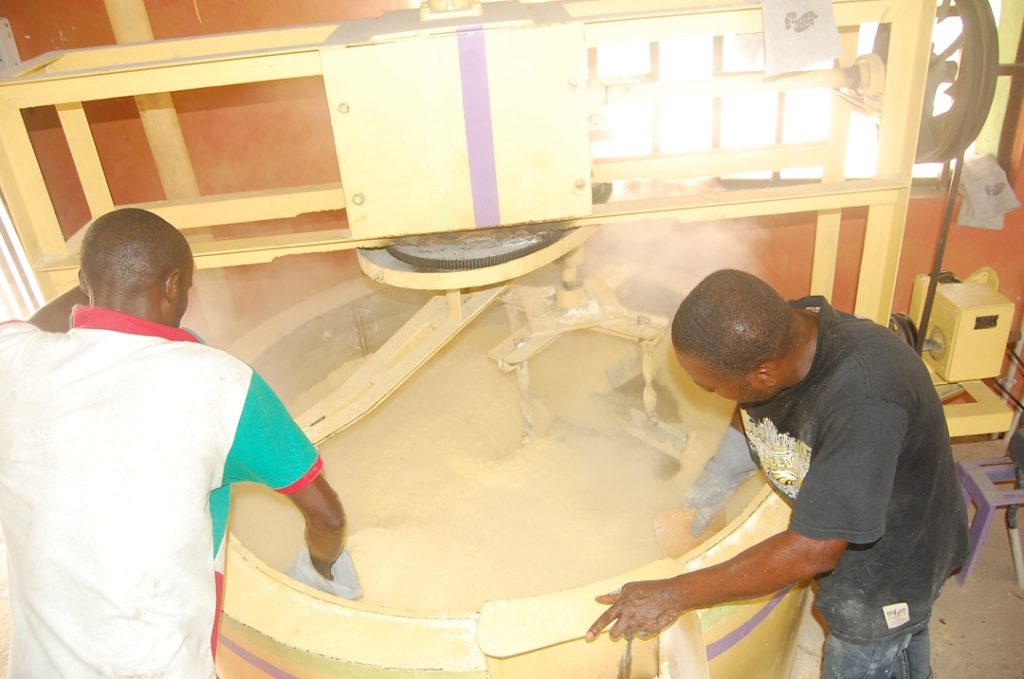
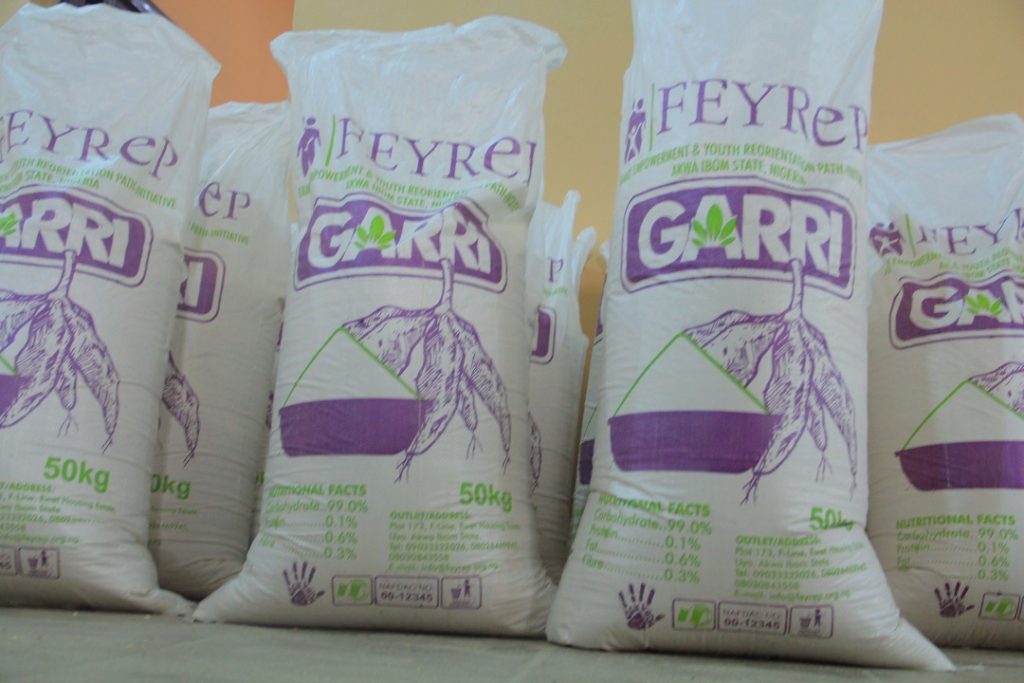
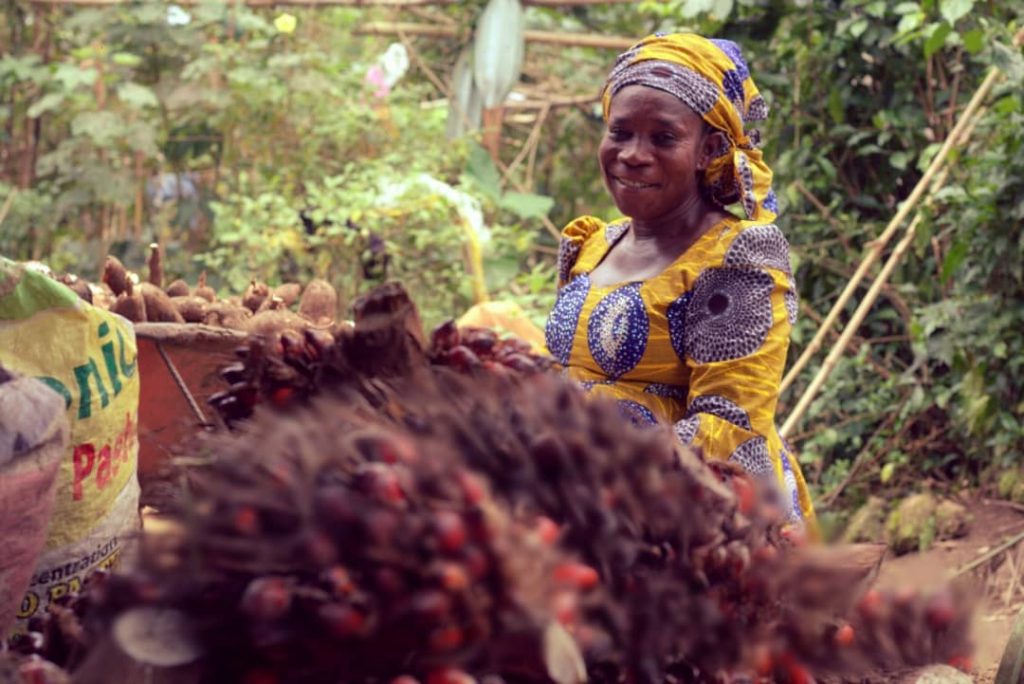
Oil Palm is currently the most consumed edible oil in the world with Malaysia and Indonesia being the top major producers. Globally, production of oil palm has continually evolved, rising from 1.2 million MT in 1964 to 73.3 million MT in 2018 based on United States Department of Agriculture (USDA) data. Indonesia (41.5 million MT) and Malaysia (39.5 million MT) accounted for an average of c.80.1% of global production between 2016 and 2018. This is unsurprising given that plantations in both countries account for c.65.0% of land area under cultivation globally. Other leading producers of oil palm as of 2018 included Thailand (2.9 million MT), Colombia (1.5 million MT) and Nigeria (1.0 million MT).
The consumption of oil palm has also expanded significantly due to affordability and users versatility compared to other oil crops. In Nigeria, oil palm production and export historically contributed substantially to Nigeria’s external reserves and agricultural GDP as palm oil and palm kernels exports composed 15.0% to 20.0% of the country’s total exports. The sector in Nigeria has since witnessed a downturn with contribution to global market share tapering to a meagre 1.4% as of 2018 according to data from the United States Department of Agriculture (USDA). This production downturn in Nigeria’s market share, is attributed to the sustained use of traditional and crude production methods by small holder farmers that account for c70.0% of industry supply. This culminated in the country becoming a net importer of the commodity in the 1980’s as rising domestic consumption could not match the sluggish growth in production. In view of this situation, on Wednesday 12th April, 2017, the Governor’s wife through FEYReP, laid the foundation for Palm Oil Processing Factories at Edem Akai, Etim Ekpo L.G.A, and Ata Obio Akpa, Oruk Anam L.G.A. The factories were completed few months after. With these factories, FEYReP has succeeded in making the processing of palm oil and allied products less cumbersome and more cost effective. It has expanded the supply chain of palm oil production in the state thereby contributing to the country’s GDP.
Plot 22 F Line,
Ewet Housing Estate,
Uyo, Akwa Ibom State
Nigeria
Copyright 2015 - 2025 - FEYReP, All Right Reserved